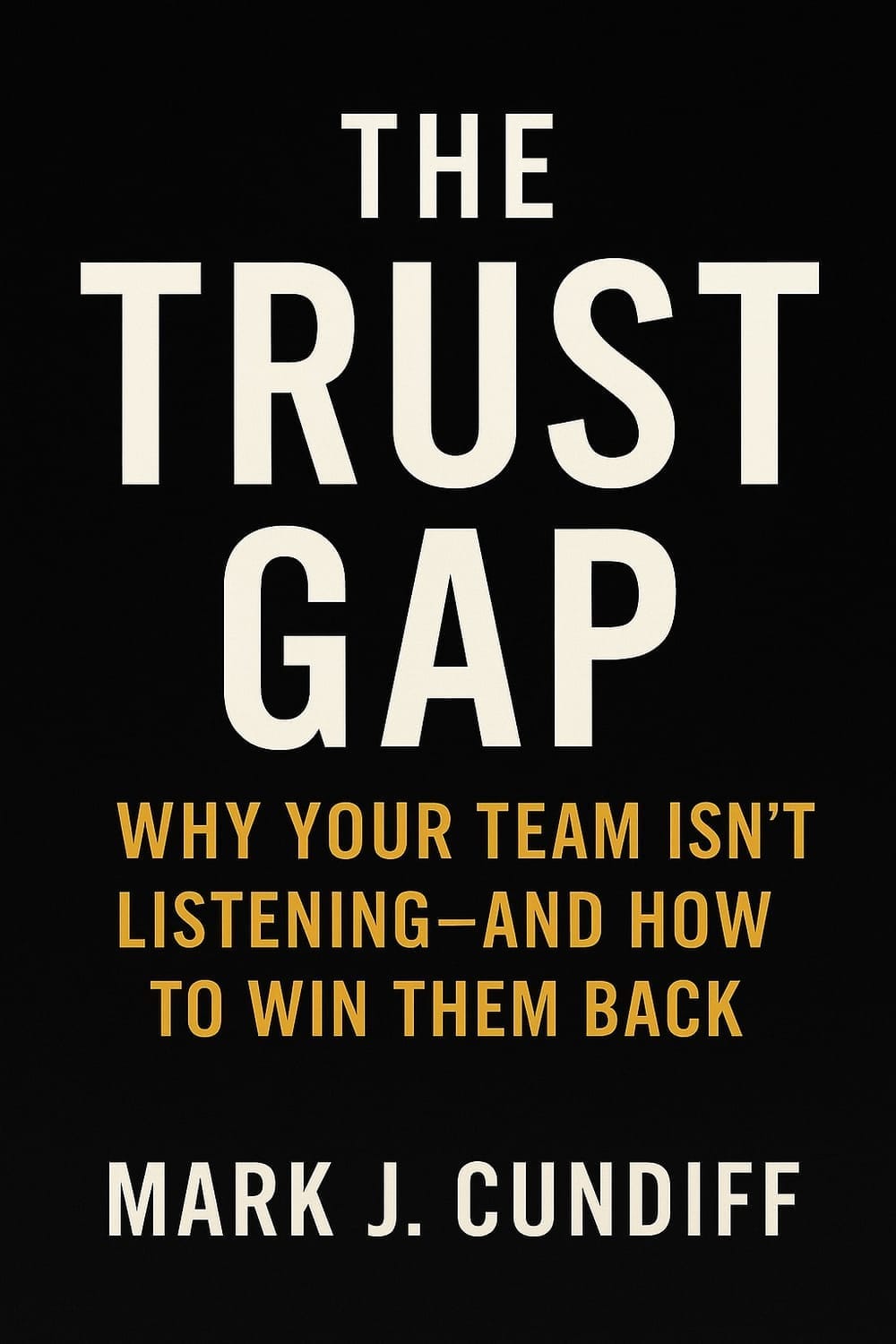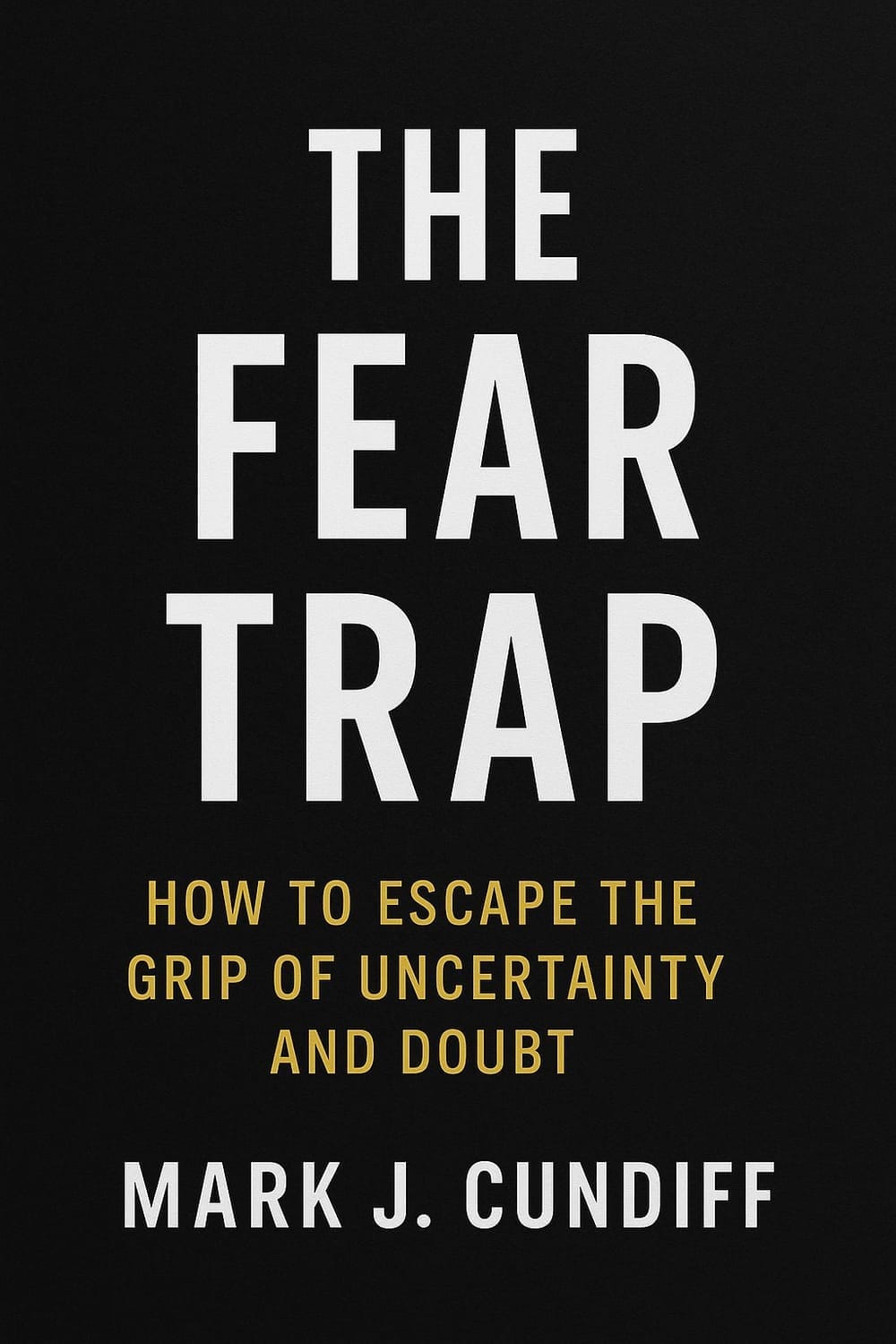Winning With People by John Maxwell - Book Summary
The Empty Office
Sarah Jenkins stared at her pristine office door, the polished nameplate reflecting the afternoon sun. Director of Operations - a title she'd worked tirelessly to achieve. Yet something was missing. Three years into her role at Meridian Technologies, few people visited her office unless they were invited.
"Another successful project deployment," she muttered, reviewing the latest metrics. The numbers were impressive - deadlines were met, budgets were maintained, and objectives were achieved.
When she walked through the open workspace earlier, she saw forced smiles and quick nods. Conversations changed when she got closer.
That evening, Sarah found herself confiding in Marcus, her mentor from graduate school who now served as an executive coach.
"You're technically brilliant, Sarah," Marcus observed, pulling a book from his shelf. "But have you considered that leadership isn't just about processes and outcomes?"
He handed her John C. Maxwell's "Winning With People."
"People don't follow spreadsheets," Marcus said gently. "They follow people they connect with, trust, and feel valued by."
Three months later, Sarah's office had undergone a transformation. The door was often open, with team members regularly stopping by to share ideas or seek guidance. Project meetings buzzed with energy and a sense of ownership. The metrics were still strong. But now, they had something even more valuable: a team culture based on real relationships.
The difference? Sarah had discovered what Maxwell articulates so clearly: "All human beings possess a desire to connect with other people." By focusing on relationships rather than tasks, she became a more effective leader. This shift helped her discover the key to achieving meaningful success.
That's the power of Maxwell's relationship wisdom, captured in this remarkable book. It's not just about being likable—it's about creating the foundation for everything else that matters in life and leadership.
Key Takeaways
Relationships are not optional extras - They form the foundation for all achievement and fulfillment
Your self-awareness determines your relational capacity - How you see yourself influences how you see and treat others
Connection requires genuine focus on others - People know when your interest is authentic
Trust is built gradually but can be broken instantly. Integrity serves as the bedrock of all meaningful relationships
Investing in others ultimately benefits everyone. The most fulfilling relationships create win-win scenarios
Your relationship skills determine your success ceiling - Technical skills may get you started, but people skills take you to the top
The Five Relationship Questions
Maxwell bases his approach on five key questions. These questions shape how we connect with others:
The Readiness Question: Are We Prepared for Relationships?
Before we can build meaningful relationships with others, we must first understand ourselves. Maxwell introduces several principles that help us prepare internally:
The Lens Principle: "Who you are determines what you see and the way you see it." If we're critical people, we'll find fault in everyone we meet. If we're trusting, we'll see trustworthiness in others. Our inner character creates the filter through which we view others.
As Maxwell notes, "If you don't like people, that really is a statement about you and the way you look at people. Your viewpoint is the problem."
The Mirror Principle: "People unaware of who they are and what they do often damage relationships with others." We must look in the mirror before attempting to build healthy relationships. This requires honest self-awareness, a positive self-image, self-honesty, self-improvement, and self-responsibility.
The Pain Principle: "Hurting people hurt others." A strong reaction to a situation can signal deeper issues within a person. Maxwell advises, "When tempted to retaliate against someone who is hurting you, try to remember that person's pain is merely spilling over."
The Hammer Principle: "When the only tool you have is a hammer, you tend to see every problem as a nail." Not every situation requires our strongest response. Maxwell suggests thinking about the "four Ts" before you reply: Total Picture, Timing, Tone, and Temperature.
The Elevator Principle: "We can lift people up or take people down in our relationships." People who add value to others almost always do so deliberately, not accidentally. "Lifters commit themselves to daily encouragement," Maxwell writes, and "initiate the positive in a negative environment."
The Connection Question: Are We Willing to Focus on Others?
Maxwell explores how genuine connection requires shifting our focus from ourselves to others:
The Big Picture Principle: "People who remain self-centered and self-serving will always have a hard time getting along with others." Maxwell urges us to step out of our "own little world." He asks us to leave our ego behind and see that true fulfillment comes from connecting with others.
The Exchange Principle: "Instead of putting others in their place, we must put ourselves in their place." This principle of empathy forms the foundation for understanding others. Maxwell advises, "Leave 'your place' and visit 'their place.'" This means you should listen to people's concerns. Also, take time to learn about their culture or profession.
The Learning Principle: "Each person we meet has the potential to teach us something."
Maxwell shares five steps to be a lifelong learner through relationships:
Make learning your passion.
Value people.
Build relationships that help you grow.
Recognize each person's uniqueness and strengths.
Ask questions.
The Charisma Principle: "People are interested in the person who is interested in them." Maxwell reminds us of Dale Carnegie's words: “People don’t care how much you know until they know how much you care.” True charisma comes from truly caring about others.
The Confrontation Principle: "Caring for people should precede confronting people." When a confrontation is needed, Maxwell suggests acting quickly. First, seek to understand before agreeing. Then, clearly state the issue, invite responses, and agree on a course of action.
The Trust Question: Can We Build Mutual Trust?
Trust serves as the currency of all meaningful relationships. Maxwell provides principles for building and maintaining trust:
The Bedrock Principle: "Trust is the foundation of all relationships." Like constructing a building, trust takes time to build, but can be quickly destroyed. Maxwell says, "Trust starts with you." He adds that trust "can't be compartmentalized" and "works like a bank account," needing regular deposits.
The Situation Principle: "Never let the situation mean more than the relationship." When we prioritize being right over being connected, we sacrifice something far more valuable. Maxwell reminds us that "people are always more important than mere things."
The Bob Principle: "If Bob has problems with Bill, and Bob has problems with Fred, and Bob has problems with Sue, and Bob has problems with Jane, and Bob has problems with Sam, then Bob is usually the problem." Maxwell provides strategies for dealing with the "Bobs" in our lives, including using the THINK acronym before speaking (Is it True, Helpful, Inspiring, Necessary, Kind?).
The Approachability Principle: "Being at ease with ourselves helps others be at ease with us."
Maxwell outlines seven traits of approachable people:
Personal warmth
Appreciation for differences
Consistent mood
Sensitivity to feelings
Understanding of human flaws
Quick to forgive and ask for forgiveness
Authenticity
The Foxhole Principle: "When preparing for battle, dig a hole big enough for a friend." Maxwell emphasizes the importance of allies who understand your perspective and demonstrate empathy. They provide both support and comfort."
The Investment Question: Are We Willing to Invest in Others?
Meaningful relationships require deliberate investment. Maxwell explores principles for investing wisely in others:
The Gardening Principle: "All relationships need cultivation." Like plants, relationships require ongoing attention.
Maxwell highlights six key areas for investment:
Commitment
Communication
Friendship
Memories
Growth
Spoiling each other
" As Samuel Johnson noted, "A man should keep his friendship in constant repair."
The 101 Percent Principle: "Find the one percent you agree on and give it one hundred percent of your effort." When connecting with difficult people, focus on common ground rather than differences. The greater the differences, the more important this principle becomes.
The Patience Principle: "The journey with others is slower than the journey alone." Building meaningful relationships takes time. Maxwell suggests that patience is key. Good relationships take time to grow. He advises practicing the exchange principle. It's essential to remember that everyone has their own unique set of problems. Also, notice where others might need patience from you.
The Celebration Principle: "The true test of relationships is not only how loyal we are when friends fail, but how thrilled we are when they succeed." To overcome jealousy and competition, recognize that success isn't a race. Celebrate others' achievements, even if they haven't noticed them yet.
The High Road Principle: "We go to a higher level when we treat others better than they treat us." As Maxwell notes, "If you're slinging mud, you're losing ground." High roaders understand that "it's not what happens to you, but what happens in you, that really matters."
The Synergy Question: Can We Create a Win-Win Relationship?
The highest level of relationship creates mutual benefit through synergy:
The Boomerang Principle: "When we help others, we help ourselves." Those who invest in others ultimately receive returns, though perhaps not in ways they expect.
Maxwell suggests putting "others first." Focus on the investment, not just the return. Choose people with great potential. Start the process with their permission. Enjoy the returns when the time is right.
The Friendship Principle: "All things being equal, people will do business with people they like. All things not being equal, they still will."
Maxwell looks at four types of business relationships:
People knowledge
Service skills
Business reputation
Personal friendship
He believes that we should never overlook the strength of friendship in the workplace."
The Partnership Principle: "Working together increases the odds of winning together." Maxwell suggests teaming up with people who share your passions and strengths. He says, “Those closest to you determine your level of success.”
The Satisfaction Principle: "In great relationships, the joy of being together is enough." In great relationships, shared memories and mutual respect matter. Growing together and unconditional love help build a strong bond. Here, connection becomes its own reward.
Practical Applications
What makes Maxwell's work so powerful is how actionable his advice remains. Consider implementing these practices:
Apply the 30-Second Rule: When meeting someone new, make your first thirty seconds about them, not yourself.
Learn the mailman's name and the dreams of others around you to practice The Charisma Principle.
Send notes of encouragement to practice The Elevator Principle and lift others up.
Before you speak to others, check if your words pass the THINK test: Is it True, Helpful, Inspiring, Necessary, and Kind?
Focus on people's strengths rather than weaknesses to build deeper connections.
Listen to a person's story before offering advice to practice The Exchange Principle.
When confronting people, outline the issue clearly, but first seek to understand rather than to agree.
Final Thoughts
As John Maxwell reminds us, relationship skills don't develop overnight. They require consistent effort and attention. However, the investment pays extraordinary dividends in both personal fulfillment and professional success.
"Winning With People" stands as an essential addition to the John Maxwell Leadership Library. It offers a small sampling of the twenty-five specific actions readers can take to build better relationships in every area of life.
These principles help leaders and individual contributors find the right words to express themselves effectively. They focus on a key trait for lasting success: the ability to connect meaningfully with others.
Benjamin Franklin, Martin Luther King Jr., and Barbara Walters demonstrated that relational skills significantly impact our success and legacy. Maxwell's work gives us the tools to build that expertise one relationship at a time.
Join over 3,900 Fellow Leaders reading The Learning To Lead Newsletter each week!
Recent Articles

Join over 4,000 Fellow Leaders reading The Learning To Lead Newsletter each week!
©2025 Learning To Lead | Helping Good Leaders Become Great Leaders


